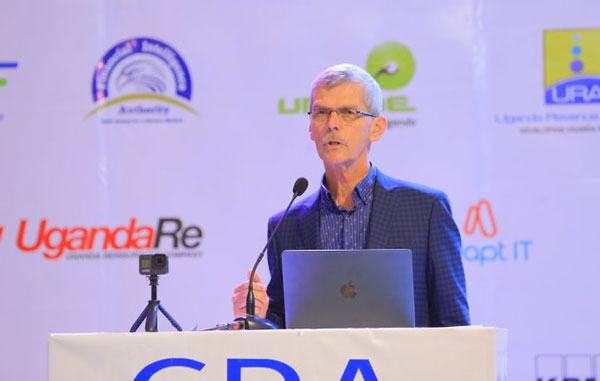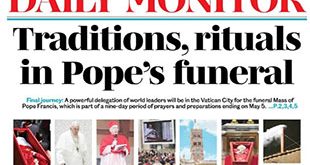
Kampala, Uganda | THE INDEPENDENT | Recent and current global occurrences have made the corporate world a more uncertain space for managers, calling on them to embrace change in all forms. Over the last five years, the world has experienced the global pandemic Covid-19, an armed conflict between rich nations: Russia and Ukraine, which has created an East/West geopolitical divide.
These, coupled with the worsening climate change effects and the digital transformation means corporate managers and staff have to adjust they do things to ensure sustainability, on top of dealing with a more informed customer base.
“In an era marked by the dominance of the free enterprise system, globalisation, knowledgeable customers with abundant choices, and rapid technological advancements, organizations are in a volatile, uncertain, complex and ambiguous world,” Emmanuel Dei-Tumi, the President of Human Capital International told the just concluded 28th Annual Seminar by the Institute of Certified Public Accountants of Uganda.
All these are in effect impacting how businesses have to operate if they are to adapt and be sustained, adding that this is time for people and systems to work even more closely together. “Silo thinking does not help us,” he added. He condemned the traditional leadership style of most managers who think, decide, and plan for the lower cadres to implement. Instead, he advised against this style, arguing that usually senior management sees 4 percent of the problem, while the staff sees 100, and hence the need for managers to engage more with their juniors so as to attain more perspective on organisational problems.
“We need to find creative ways of utilising what we were taught in school, in a new world order,” Dei-Tumi said. Dr. Ian Clarke, the Chairman Advisory Board for East Africa CTI Africa, said it would take a complete mindset change for Ugandan leaders, including political and corporate leaders, to embrace change, yet it is necessary.
Delivering a keynote address earlier at the event, Dr. Clarke said the lack of willingness by leaders to change has cost the country many opportunities, saying leaders are more concerned with maintaining their positions instead of working to use their positions for a positive change for their communities.
He gave an example of when he went out of his way to use his own facilities like a truck to rid the Makindye Division of potholes and garbage heaps during his tenure as mayor there. “It is like a culture. People in Uganda want to keep their positions as the main goal and not use their positions to transform the people,” he said. Dr Clarke, the founder of International Medical Centre and now a coffee farmer too, expressed sadness at the Uganda tourism industry which has failed to compete with its peers in the region, despite the abundant resources.
“Why has Uganda failed to market its tourism? Look at Rwanda. It is because the leadership has failed to have people there who can work,” he said. He called on the accountancy profession to lead the change“To bring change, we need to lead the change. Be prepared to move on,” he said, adding, “You are more than the position you hold and there will be a new season for you,” he added.
The seminar was organised under the theme: of empowering change for corporate and personal growth, with the aim of making accountancy professionals ready to embrace change and fit in the changing environment and demands. “As surely as the sun rises and sets daily, so is change. In relationships, in families, in organisations, in the climate, in the standards, in technology, in healthcare, in communication, you name it, change is everywhere. There is no escape,” said Josephine Okui Ossiya, the president, of ICPAU.
“The big question then is, how do we cope with it? How do we leverage change for our benefit? Is it possible to stay ahead of change? Can we empower change so that we enhance our value proposition to our stakeholders and to ourselves?”
****
URN
 The Independent Uganda: You get the Truth we Pay the Price
The Independent Uganda: You get the Truth we Pay the Price



